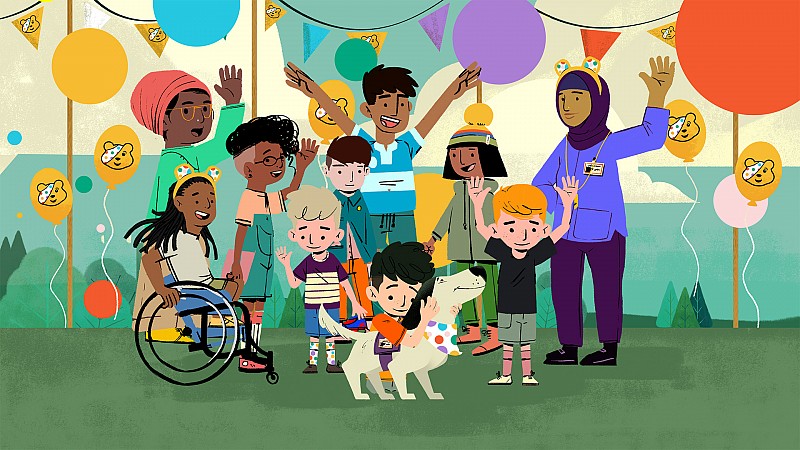Last year, Children in Need raised a whopping £39.3 million on the night and donations continued to trickle in over the following days. The total amount was later announced as £51 million! We are thankful to be one of the many organisations supporting children to consistently benefit from the generosity of so many who regularly watch the telethon and donate. As the 2022 appeal goes live tonight, we would like to share how Pudsey has helped the children and young people we support at The Haven.
According to Women’s Aid, in 40-70% of cases where a mother has been abused, the child has also suffered direct abuse. This can seriously impact a child or young person’s mental and physical wellbeing, as well as their behaviour, which can last into adulthood. Infants and small children exposed to violence in the home experience such emotional stress, it has the same effect on their brain as combat does on the brain of a soldier! Psychologists suggest that this is because both children and soldiers have adapted to be ‘hyper-aware’ of the dangers that they are exposed to in their environments.
Children should be allowed to be children; protected and free from harm, free to be and free to express themselves, without having to worry about the risk to their lives, like soldiers on a battlefield. Yet far too often they come to us withdrawn and aggressive. Many struggle with learning. In some cases, we have seen children suffer from depression, anxiety, insomnia, and nightmares. Furthermore, they exhibit higher rates of behavioural problems than their peers and engage in more risk-taking behaviour, making them vulnerable to other abuse, exploitation, and harm as they grow up.

Wolverhampton, is in the 6% most deprived areas of the country (20th most deprived local authority). A third of children here live in poverty. For children living in abusive homes, this is often further compounded by the perpetrator controlling the finances of the household. Children are experiencing severe and multiple disadvantages and are vulnerable to being excluded from mainstream society.
Many children who have been abused by a parent or have witnessed the abuse of a parent sometimes think that growing up and leaving home will help them move on from their traumatic experiences. Many struggle with making a new life for themselves as the effects of their experiences are often long lasting and they can transition into adults who are prisoners of their childhood, constantly reliving the trauma that they so desperately want to put behind them.
Funding from BBC Children in Need has enabled us to support over 200 children and young people in the last year. We do our best to provide them with some stability and to put smiles on their faces, given the circumstances. We provide counselling sessions and play therapy sessions among other things with a dedicated specialist team, trained to support children and young people. We also provide programmes to help mothers in their parenting journey after experiencing domestic abuse.
Activities which are adapted on an ongoing basis include:
1:1 counselling and therapies including art, music, therapeutic water play, construction play, and virtual reality
Baby stay and play for 0-5s
Messy play sensory activities for 2-4s
Arts and crafts
Gardening
Baking
Outdoor pursuits
Additional activities over school holidays including sports and day trips
Health and well-being sessions including feelings and wishes tree to enable children and young people to explore how they are feeling in a safe way
Healthy relationship workshops helping to break the cycle of abuse
So far, children and young people have reported an increase in life-skills, improved and more positive relationships, emotional resilience, and self-confidence. Over 90% of children and young people have seen a significant change and their emotional, social, and behavioural scores improved from abnormal to normal.
Here are some of the things children have said about our virtual reality therapy:
Here are some of the things mums have said about our services:
Please note that names have been changed to protect the identity of individuals.



